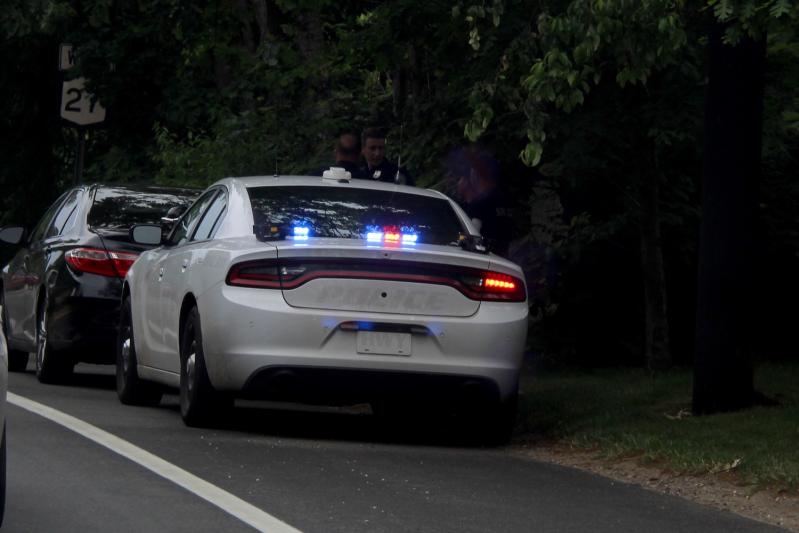A person is pulled over for driving erratically. It’s clear to the officer that the driver is drunk. Is it important if the person was drinking beer, wine, or liquor? According to the law and common sense, not at all. The driver can be prosecuted for driving while intoxicated.
The same, however, is not true for a driver who is found to be under the influence of drugs. If police cannot ascertain just what substance is involved, they may not be able to make an arrest for a drug-related driving violation. Even if they can identify the drug, but it’s not on a state-approved list of illegal substances, prosecution may be impossible.
New York is one of only four states that maintains such a list. The State Assembly is now considering a new law, dubbed the Deadly Driving Bill, that would change that.
“The type of alcohol ingested by the driver does not matter for an alcohol D.W.I., and the same should be true for drugs and other substances,” said Raymond Tierney, the Suffolk County District Attorney, who traveled to Albany in January to press lawmakers to adopt the law.
“Observations of impairment alone are not enough in this state,” said Maureen McCormick, a county special assistant D.A. for litigation initiatives. “The drug has to be named, and it has to be on that list. The problem is, you can never keep up.” The bill would do away with the list and change the definition of “drug” in the state law to include “any substance or combination of substances that impair, to any extent, physical or mental abilities.”
“This language would combat the growing number of synthetic drugs that have the chemical composition constantly changed to avoid detection,” reads a draft of the law. But apart from the “Breaking Bad”-types, other substances that may cause impairment are hiding in plain sight. For example, tianeptine, also called gas-station heroin, is not on the list. It’s sold in supplements, including one known as Neptune’s Fix, despite repeated warnings from the Food and Drug Administration. And “Tranq,” a sedative used by veterinarians, which, according to Ms. McCormick, is “spreading like a nightmare,” is not on the list. So, even if a driver admits they’re high on either of these substances, the law has no case. The driver may be taken off the road for the night, but without further repercussion.
“When New York legalized cannabis several years ago, one of my greatest concerns was the predictable adverse impact on traffic safety,” Assemblyman Fred W. Thiele Jr. wrote in a text. “I was not able to support the cannabis legislation because of the failure to address this issue. It was obvious that our rules on traffic enforcement also needed to be updated. The legislation before the Assembly would address this issue. I support the efforts of our district attorney to reform our traffic safety laws to address drugged driving.”
For anyone concerned that the proposed law may impact the legal use and possession of cannabis, Ms. McCormick said they need not worry. “This is just about driving. Nothing about this bill expands a cop’s ability to pull you over. It does not roll back cannabis legalization.”
Despite, in many instances, its legalization, it is always illegal for marijuana to be smoked in a moving vehicle. “It’s just like the open-container law and alcohol,” said Ms. McCormick. That law prohibits any driver or passenger from having an open container containing alcohol. “Anytime someone is smoking cannabis in a moving car, it’s illegal.”
Drugged drivers are increasingly common in New York State. A release from Mr. Tierney’s office states that the rise in “drug-involved fatalities has outpaced drinking driver fatalities in the last five years. Drug-involved fatalities have increased 33 percent from 200 in 2018, to 266 in 2022. The raw number is also higher than alcohol and represents 23 percent of the total number of roadway fatalities in the state.”
Nationally, according to the National Highway Traffic Safety Administration, “56 percent of drivers involved in serious injury and fatal crashes tested positive for at least one drug. In New York, 40 percent of fatal and injury crashes in 2020 were drug related.”
The law would also add a new tool to officers’ belts: oral fluid testing, which acts like a breathalyzer and lets them know if drugs have been recently ingested. (Breathalyzers only detect alcohol intake.) In addition, it would make refusing a field test a traffic infraction.
“Recent court decisions have invalidated charging a traffic infraction for refusing to submit to a field test. There is no longer a consequence for violating this mandatory public safety provision,” reads the bill. “Non-invasive oral fluid testing will reduce the number of dangerously impaired drivers on New York’s roadways.” Additionally, “It allows the ‘odor of cannabis or burnt cannabis’ to be used to support ‘reasonable cause’ in an application for a court order to compel submission to a chemical test.”
Ms. McCormick said it’s more about prevention than punishment. “The whole deal is to prevent these drivers from getting back on the road. They receive treatment and a traffic infraction. The intent is to get them out from behind a wheel when they’re high.” She said those who are arrested for driving impaired rarely get charged with misdemeanors.
“This isn’t just a public safety issue,” she added. “It’s a public health issue. You’re not just saving the people on the roadways, but potentially the drivers. Getting people into treatment is never a bad thing.”
Assemblyman Thiele says the bill is currently with the Transportation Committee. He doesn’t expect a vote on it until the state budget is adopted.



